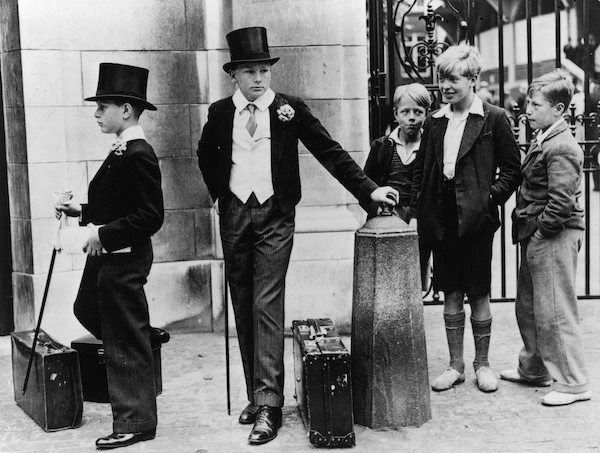Last week, YouGov conducted a poll in which people were asked to judge how middle class the party leaders are. Ed Miliband was the winner, with 45 per cent deeming him ‘middle class’, compared with 39 per cent who thought him ‘upper class’. David Cameron was the clear loser. Only 15 per cent judged him ‘middle class’, against 77 per cent who thought him ‘upper class’. Cue much handwringing in the Conservative party about what the Prime Minister can do to appear less out of touch.
I don’t use the terms ‘winner’ and ‘loser’ loosely. Being perceived as upper class in contemporary Britain is the kiss of death, and not just in politics. In the same poll, YouGov asked people the question, ‘What class are you?’ Forty-six per cent said ‘working class’, 49 per cent ‘middle class’ and just 1 per cent ‘upper class’. I’m surprised the number was so high, frankly. I’ve been hobnobbing with society types for over 30 years — including dukes, billionaires and minor royals — and I’ve only ever heard one person describe themselves as upper class.
To complicate matters, the person in question was, in fact, middle class. It’s become so unfashionable among the upper classes to be thought of as posh that anyone who identifies themselves as such is, almost by definition, not. These days, even calling yourself ‘upper middle class’ is taboo. George Orwell’s description of himself as ‘lower upper middle’ would be condemned as unacceptably self-aggrandising today. In the hall of mirrors that is the English class system, identifying yourself as ‘upper’ anything has become Non-U, with the paradoxical result that genuinely posh people are too snobbish to call themselves upper class. They don’t want to be thought of as ‘middle class’ in the pejorative, old-fashioned sense, so they call themselves ‘middle class’ in the new, deliberately vague sense. I’ve never asked David Cameron what class he is, but I’m sure he’d say middle class. Or, to use the correct phrase: ‘I don’t know, middle class I suppose. I’ve never really thought about it.’
What polls like this reveal is that we’ve become a nation of inverted snobs. To be precise, everyone dis-avows the class hierarchy that prevailed until about 25 years ago, but they do so partly because to admit you set any store by it is, in itself, a low-class indicator. So the English class system hasn’t really gone away, it’s just become more insidious. Officially, it’s ceased to exist in the sense that no one cares whether you say ‘serviette’ or ‘napkin’. But unofficially, it’s still there, casting its ancient spell.
The metamorphoses of the class system from overt to covert, above ground to underground, must be connected to the massive increase in economic inequality in the past 25 years or so. According to Oxfam, the 85 richest people in the world now control as much wealth as the poorest half of the global population put together. ‘Widening inequality is creating a vicious circle where wealth and power are increasingly concentrated in the hands of a few, leaving the rest of us to fight over crumbs from the top table,’ says the charity’s executive director.
It’s a little known fact that the Gini coefficient – the standard measure of income inequality – has declined in the UK since David Cameron became Prime Minister, but, clearly, the direction of travel has been towards a greater concentration of wealth. If these plutocrats are to hold on to their money — if they’re to avoid a repeat of the redistributive taxes that crippled the British aristocracy in the aftermath of the second world war — it’s essential to present themselves as meritocrats rather than the beneficiaries of class privilege. That way, their vast wealth is more palatable. It’s earned, rather than inherited. The pretence that Britain has become less class-bound since 1979 is a noble lie. It’s the illusion that prevents the masses from erupting in open revolt. What’s so remarkable is that everyone in our society has bought into it, not just the richest 1 per cent.
I realise I’m beginning to sound like Owen Jones, so I’ll caveat this by saying it’s not an out-and-out deception. Some of the richest people in Britain have pulled themselves up by their bootstraps. And there has been a convergence in habits and taste across the entire social spectrum. But the fact remains that Britain is as class-bound as it’s ever been. We just won’t admit it to ourselves.







Comments